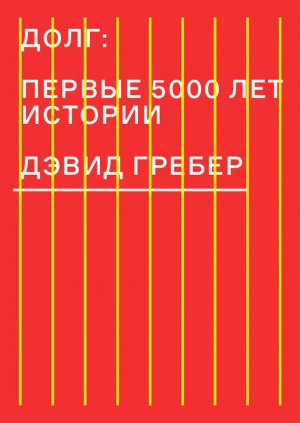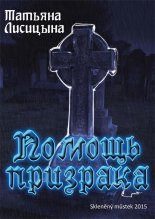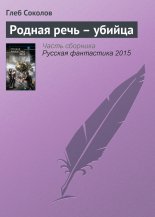ƒолг: первые 5000 лет истории √ребер ƒэвид

Guisborough, William of. 1954. The Chronicle of William of Guisborough. (H. Rothwell, editor.) London: Camden.
Gupta, Parameshwari Lai and T. R. Hardaker. 1985. Indian Silver Punchmarked Coins: Magadha-Maurya Karshapana Series. Nashik: Indian Institute of Research in Numismatic Studies.
Guth, Delloyd J. 2008. УThe Age of Debt: the Reformation and English Law.Ф In Tudor Rule and Revolution: Essays for G. R. Elton from His American Friends (Delloyd J. Guth and John W. McKenna, editors), pp. 69Ц86. Cambridge: Cambridge University Press.
Guyer, Jane 1.1994. УBrideprice.Ф In The Encyclopedia of Social History (Peter N. Stearns, editor.), p. 84. London: Taylor & Francis.
2004. Marginal Gains: Monetary Transactions in Atlantic Africa. Chicago: University of Chicago Press.
Hadot, Pierre. 1995. Philosophy as a Way of Life: Spiritual Exercises from Socrates to Foucault. (Michael Chase, translator). Oxford: Blackwell.
2002. What Is Ancient Philosophy? Cambridge: Belknap Press.
Hallam, Henry. 1866. The constitutional history of England, from the accession of Henry VII to the death of George II. London: Widdelton.
Halperin, David. 1990. УThe Democratic Body: Prostitution and Citizenship in Classical Athens.Ф In One Hundred Years of Homosexuality and Other Essays on Greek Love (David Halperin, editor), pp. 88-112. New York: Routledge.
Hamashita, Takeshi. 1994. Tribute Trade System and Modern Asia.Ф In Japanese Industrialization and the Asian Economy (A. J. H. Latham and H. Kawakatsu, editors), pp. 91 -107. London and New York: Routledge.
2003 УTribute and treaties: maritime Asia and treaty port networks in the era of negotiations, 1800Ц1900.Ф In The resurgence of East Asia: 500,150 and 50 year perspectives (Giovanni Arrighi, et al, editors), pp. 15Ц70. London; New York: Routledge.
Hamilton, Earl J. 1934. American Treasure and the Price Revolution in Spain, 1501Ц1650. Cambridge: Harvard University Press.
Hardaker, Alfred. 1892. A Brief History of Pawnbroking. London: Jackson, Ruston and Keeson.
Hardenburg, Walter Ernest, and Sir Roger Casement. 1913. The Putumayo: the devil's paradise; travels in the Peruv ian Amazon region and an account of the atrocities committed upon the Indians therein. London: T. F. Unwin.
Harding, Alan. 1980. УPolitical Liberty in the Middle Ages.Ф Speculum 55 (3): 423Ц443. Harrill, J. Albert. 1998. The manumission of slaves in early Christianity. Tubingen: Mohr Siebek. Harris, Edward M. 2006. Democracy and the Rule of Law in Classical Athens: Essays on Law, Society, and Politics. Cambridge: Cambridge University Press.
Harris, William Vernon, editor. 2006. УA Revisionist View of Roman Money.Ф Journal of Roman Studies 96: 1-24.
2008a. УIntroduction.Ф In The monetary systems of the Greeks and Romans (W. V. Harris, editor), pp. 1-12. Oxford: Oxford University Press.
2008b. УThe Nature of Roman Money.Ф In The monetary systems of the Greeks and Romans (W. V. Harris, editor), pp. 174Ц207. Oxford: Oxford University Press.
Harris, Rosemary. 1972. УThe History of Trade at Ikom, Eastern Nigeria.Ф Africa: Journal of the International African Institute, vol. 42 (2): 122Ц139.
Harrison, James P. 1965.. УCommunist Interpretations of the Chinese Peasant Wars.Ф The China Quarterly, no. 24. pp. 92-118.
Hart, Keith. 1986. УHeads or Tails? Two Sides of the Coin.Ф Man (New Series) 21:637Ц656.
1999. The Memory Bank: Money in an Unequal World. London: Perpetua Books.
Huang, Ray. 1974. Taxation and Governmental Finance in Sixteenth-Century China. Cambridge: Cambridge University Press.
1999. Broadening the horizons of Chinese history: discourses, syntheses, and comparisons. Amonk: M. E. Sharpe.
Hawtrey, Ralph G. 1928. Currency and Credit. 3rd edition. London: Longmans, Green and Co.
Hayward, Jack. 1959. УSolidarity: The Social History of an Idea in Nineteenth Century France.Ф International Review of Social History 4:261Ц284.
Heady, Patrick. 2005. УBarter.Ф In Handbook of Economic Anthropology (James Carrier, editor), pp. 262Ц274. Cheltenham: Edward Elgar.
Hebert, Jean-Claude. 1958. УLa Parente a Plaisanterie a Madagascar: Etude d'Ethnologie Juridique.Ф Bulletin de Madagascar, no. 142Ц143 (April-May 1958): 122Ц258.
Heilbron, Johan. 1998. УFrench Moralists and the Anthropology of the Modern Era: On the Genesis of the Notions of' Interest' and 'Commercial Society.Ф' In The rise of the social sciences and the formation of modernity: conceptual change in context, 1750Ц1850 (Bjorn Wiitrock, Johan Heilbron, & Lars Magnusson, editors), pp. 77-106. Dordrecht: Kluwer Academic Publishers.
Heinsohn, Gunnar and Otto Steiger. 1989. УThe Veil of Barter: The Solution to 'The Task of Obtaining Representations of an Economy in which Money is Essential.Ф In Inflation and Income Distribution in Capitalist Crisis: Essays in Memory of Sidney Weintraub. Edited by J. A. Kregel. New York: NYU Press, pp. 175Ц202.
Helmholz, Richard H. 1986. УUsury and the Medieval English Church Courts.Ф Speculum 56:364Ц380.
Herbert, Eugenia W. 2003. Red Gold of Africa: Copper in Precolonial History and Culture. Madison: University of Wisconsin Press.
Herlihy, David. 1985. Medieval Households. Cambridge: Harvard University Press.
Herzfeld, Michael. 1980. УHonour and Shame: Problems in the Comparative Analysis of Moral SystemsФ Man 15:339Ц351.
1985. The Poetics of Manhood. Princeton: Princeton University Press.
Hezser, Catherine. 2003. УThe Impact of Household Slaves on the Jewish Family in Roman Palestine.Ф Journal for the Study of Judaism 34 (4): 375Ц424.
Hildebrand, Bruno. 1864. УNatural-, Geld- und Creditwirtschaft.Ф Jahrbuch Nationalokonomie 1864. Hill, Christopher. 1972. The World Turned Upside Down. New York: Penguin.
Hirschman, Albert 0.1977. The Passions and the Interests: Political Arguments for Capitalism Before its Triumph. Princeton: Princeton University Press.
1992. Rival views of market society and other recent essays. Cambridge: Harvard University Press.
Hocart, Alfred M. 1936. Kings and Councillors: an essay in the comparative anatomy of human society. Chicago: University of Chicago Press.
Hodgson, Marshall G. S. 1974. The Venture of Islam: Conscience and History in a World Civilization. Chicago: University of Chicago Press.
Hoitenga, Dewey J. 1991. Faith and reason from Plato to Plantinga: an introduction to Reformed epistemol-ogy. Albany: SUNY Press.
Holman, Susan R. 2002. The hungry are dying: beggars and bishops in Roman Cappadocia. New York: Oxford University Press.
Homans, George. 1958. УSocial Behavior as Exchange.Ф American Journal of Sociology 63 (6): 597Ц606. Homer, Sydney. 1987. A History of Interest Rates (2nd edition). New Brunswick: Rutgers University Press. Hopkins, Keith. 1978. Conquerors and Slaves: Sociological Studies in Roman History. Cambridge: Cambridge University Press.
Hoppit, Julian. 1990. УAttitudes to Credit in Britain, 1680Ц1790.Ф The Historical Journal 33 (2): 305Ц322. Hoskins, Janet. 1999. Biographical Objects: How Things Tell the Stories of People's Lives. New York: Rout] edge.
Hosseini, Hamid S. 1995. УUnderstanding the market mechanism before Adam Smith: economic thought in Medieval Islam.Ф History of Political Economy 27 (3): 539Ц561.
1998. УSeeking the roots of Adam Smith's division of labor in medieval Persia.Ф History of Political Economy 30 (4): 653Ц681.
2003. УContributions of Medieval Muslim Scholars to the History of Economics and their Impact: A emtation of the Schumpeterian Great Gap.Ф In The Blackwell Companion to Contemporary Economics, III: A Companion to the History of Economic Thought (Warren J. Samuels, Jeff Biddle, and John Bryan Davis, editors), pp. 28Ц45. London: Wiley-Blackwell.
Houston, Walter J. 2006. Contending for Justice: Ideologies and Theologies of Social Justice in the Old Testament. London: T & T Clark.
Howel, King. 2006. Ancient laws and institutes of Wales: Laws Supposed to Be Enacted by Howel the Good. Clark, New Jersey: The Lawbook Exchange, Ltd.
Howell, Paul P. 1954. A Manual of Nuer Law. International Africa Institute. London: Oxford University Press.
Howgego, Christopher. 1992. УThe Supply and Use of Money in the Roman World 200 ¬— to AD 300.Ф Journal of Roman Studies 82: 1-31.
Hubbard, Jamie. 2001. Absolute Delusion, Perfect Buddhahood: The Rise and Fall of a Chinese Heresy. Honolulu University of Hawaii.
Hubert, Henri and Marcel Mauss. 1964. Sacrifice: Its Nature and Function. Translated by W. D. Halls. London: Cohen and West.
Hudson, Kenneth. 1982. Pawnbroking: An Aspect of British Social History. London: The Bodley Head.
Hudson, Michael. 1992. УDid the Phoenicians Introduce the Idea of Interest to Greece and Italy Ч And if So, When?Ф In Greece Between East and West: 10th-8th Centuries ¬— (Giinter Kopcke and Isabelle Tokumaru, editors), pp. 128Ц143. Mainz: Verlag Philipp von Zabern.
1993. УThe Lost Tradition of Biblical Debt Cancellations.Ф Research paper presented at the Hentry
George School of Social Science, 1992 (http://www.michael-hudson.com/ articles/debt/Hudson,LostTradition.pdf).
2002. УReconstructuring the Origins of Interest-Bearing Debt and the Logic of Clean Slates.Ф In Debt and Economic Renewal in the Ancient Near East (Hudson, Michael and Marc Van de Mieroop, editors), pp. 7-58. Bethesda: CDL Press.
2003a. Super Imperialism: The Origins and Fundamentals of U. S. World Dominance. London: Pluto Press.
2003b. УThe creditary/monetarist debate in historical perspective.Ф The State, the Market, and Euro: chartalism versus metallism in the theory of money, (edited by Stephanie Bell and Edward Nell), pp. 39Ц76. Cheltenham: Edward Elgar Press.
2004a. УThe archeology of money: debt vs. barter theories of money.Ф In Credit and State Theories of Money (Randall Wray, editor), pp. 99-127. Cheltenham: Edward Elgar Press.
2004b. УThe Development of Money-of-Account in Sumer's Temples.Ф In Creating Economic
Order: Record-Keeping, Standardization and the Development of Accounting in the Ancient Near East (Michael Hudson and Cornelia Wunsch, editors), pp. 303Ц329. Baltimore: CDL Press.
Hudson, Michael and Marc Van de Mieroop, editors. 2002. Debt and Economic Renewal in the ancient Near East. Bethesda, MD: CDL Press.
Humphrey, Caroline. 1985. УBarter and Economic Disintegration.Ф Man 20:48Ц72.
1994. УFair Dealing, Just Rewards: the Ethics of Barter in North-East Nepal.Ф In Barter, Exchange, and Value: An Anthropological Approach (Caroline Humphrey and Stephen Hugh-Jones, editors), pp. 107Ц141. Cambridge: Cambridge University Press Humphrey, Chris. 2001. The politics of carnival: festive misrule in medieval England. Manchester: Manchester University Press.
Hunt, William. 1983. The Puritan moment: the coming of revolution in an English county. Cambridge: Harvard University Press.
Hutchinson, Sharon. 1996. Nuer Dilemmas: Coping with Money, War, and the State. Berkeley: University of California Press.
Ibn Battuta. 1354 [1929]. Travels in Asia and Africa, 1325Ц1354 (translated by H. A. R. Gibb). London: Routledge and Kegan Paul.
Icazbalceta, Joaquin Garcia. 2008. Memoriales de Fray Toribio de Motolinia. Charleston: BiblioBazaar.
Ihering, Rudolf von. 1877. Geist des Romischen Rechts auf den verschieden en Stufen seiner Entwicklung. (Republished 2003 by Adamant Media Corporation, Berlin.)
Ilwof, Franz. 1882. Tauschhandel und Geldsurrogate in alter und neuer Zeit. Graz.
Ingham, Geoffrey. 1996. УMoney as a Social Relation.Ф Review of Social Economy 54 (4): 507Ц529.
1999. УCapitalism, Money, and Banking: a critique of recent historical sociology.Ф British Journal of Sociology 5(1): 76Ц96.
2000. 'ФBabylonian Madness': on the historical and sociological origins of money.Ф in What is Money? (edited by John Smithin), New York: Routledge, pp. 16Ц41.
2004. The Nature of Money. Cambridge: Polity Press. Ingram, Jill Phillips. 2006. Idioms of Self- interest: Credit, Identity and Property in English Renaissance Literature. New York: Routledge.
Inkori, Joseph E. 1982. УThe Import of Firearms into WestAfrica, 1750 to 1807: a quantative analysis.Ф In Forced Migration: The Impact of the Export Slave Trade on African Societies (J. E. Inkori, editor), pp 126Ц153. London: Hutchinson University Library.
Innes, A. Mitchell. 1913. УWhat is Money?Ф Banking Law Journal (May 1913): 377Ц408.
1914. УThe Credit Theory ofMoney.Ф Banking Law Journal (January 1914): 151Ц168.
Ioannatou, Marina. 2006. Affaires d'argent dans la correspondance de Ciceron: l'aristocratie senatoriale face a ses dettes. Paris: De Boccard.
Isichei, Elizabeth. 1976. A History of the Igbo People. London: Basingstoke.
Islahi, Abdul Azim. 1985. УIbn Taimiyah's Concept of Market Mechanism.Ф Journal of Research in Islamic Economics 2 (2): 55Ц65.
2003. Contributions of Muslim Scholars to Economic Thought and Analysis (11-905 AH/ 632-1500 AD) Jeddah: Islamic Research Center.
Jacob, Guy. 1987. УGallieni et' lТimpot moralisateur' a Madagascar: theorie, pratiques et consequences (1901Ц1905).Ф Revue Francaise d'Histoire d'Outremer 74(277): 431Ц473.
James, C. L. R. 1938. The Black Jacobins: Toussaint L'Ouverture and the San Domingo Revolution. London: Seeker and Warburg.
Jan, Yun-hua, 1964. УBuddhist Self-immolation in Medieval China.Ф History of Religions (4) 2:243Ц268.
Janssen, Johannes. 1910. A History of the German People at the Close of the Middle Ages. (A.M. Christie, translator.) London: Kegan Paul.
Jasnow, Richard Lewis. 2001. УPre-demotic Pharaonic sources.Ф In Security for debt in Ancient Near Eastern law (Westbrook, R. & Jasnow, R, editors), pp. 35Ц45. Leiden, Boston & K61n: Brill.
Jaspers, Karl. 1949. Vom Ursprung und Ziel der Geschichte. Munchen: Piper Verlag.
1951. Way to Wisdom: An Introduction to Philosophy. New Haven: Yale University Press.
Jefferson, Thomas. 1988. Political Writings. (Joyce Oldham Appleby, Terence Ball, editors). Cambridge: Cambridge University Press.
Jenkinson, C. Hilary. 1911. УExchequer Tallies.Ф Archaeologia 62:367Ц380.
1924. УMedieval Tallies, Public and Private.Ф Archaeologia 74:289Ц324.
Jevons, W. Stanley. 1871. Theory of Political Economy. New York: Macmillan & Co.
1875. Money and the Mechanism of Exchange. New York: Appleton and Company.
Jobert, Bruno. 2003. УDe la solidarite aux solidarites dans la rhetorique politique francaise.Ф In —. ¬есе and G. Procacci, ed., De laresponsabilite solidaire, pp. 69Ц83. Paris: Syllepses.
Johnson, Lynn. 2004. УFriendship, Coercion, and Interest: Debating the Foundations of Justice in Early Modern England.Ф Journal of Early Modern History 8(1): 46Ц64.
Johnson, Simon. 2009. УThe Quiet Coup.Ф Atlantic Monthly, May 2009, http://www.the-atlantic.com/ doc/200905/imf-advice.
Jones, David. 2004. Reforming the morality of usury: a study of differences that separated the Protestant reformers. Lanham: University Press of America.
Jones, G.I. 1939. УWho are the Aro?Ф Nigerian Field 8: 100Ц103.
1958. УNative and Trade Currencies in Southern Nigeria during the Eighteenth and Nineteenth Cen- turies.Ф Africa: Journal of the International African Institute 28 (1): 43Ц56.
1968. УThe Political Organization of Old Calabar.Ф In Efik Traders of Old Calabar (D. Forde, editor). London: International African Institute.
Jones, J. Walter. 1956. The Law and Legal Theory of the Greeks. Oxford: Clarendon Press.
Jordan, Kay E. 2003. From Sacred Servant to Profane Prostitute: A History of the Changing Legal Status of Devadasis in India, 1857Ц1947. New Delhi: Manohar.
Just, Roger. 1989. Women in Athenian Law and Life. London: Routledge
2001. УOn the Ontological Status of Honour.Ф In An anthropology of indirect communication (Joy
Hendry, C. W. Watson, editors), pp. 34Ц50. ASA Monographs 37. London: Routledge.
Kahneman, Daniel. 2003. УA Psychological Perspective on Economics.Ф American Economic Review 93 (2): 162Ц168.
Kallet, Lisa. 2001. Money and the corrosion of power in Thucydides: the Sicilian expedition and its aftermath. Berkeley: University of California Press.
Kaltenmark, Max. 1960. УLing pao: Notes sur un terme du taoisme religieux.Ф Melanges publies par l'lnstitut des Hautes Etudes Chinoises 2:559Ц588.
Kalupahana, David. 1991. Mulamadhyamakakarika of Nagarjuna: the Philosophy of the Middle Way. Delhi: Motilal Banarsidas.
Kamentz, Anya. 2006. Generation Debt: Why Now is ATerrible Time to Be Young. New York: Ri verhead Books.
Kan, Lao. 1978. УThe Early Use of the Tally in China.Ф In Ancient China: Studies in Early Civilization (edited by David T. Roy and Tsuen-hsuinTsien), pp. 91Ц98. Hong Kong: Chinese University Press.
Kane, Pandurang Vaman. 1968. History of Dharmasastra, vol. III. Poona: Bhandarkar Oriental Research Institute.
Kantorowicz, Ernst H. 1957. The King's Two Bodies: a Study in Medieval Political Theology. Princeton: Princeton University Press.
Karatani, Kojin. 2003.Transcritique: On Kant and Marx. Cambridge: MIT Press. Keil, Charles. 1979. Tiv Song. Chicago: University of Chicago Press.
Keith, Arthur Berriedale. 1925. The Religion and Philosophy of the Veda and Upanishads. Cambridge: Harvard University Press.
Kelly, Amy. 1937. УEleanor ofAquitaine and Her Courts of Love.Ф Speculum 12 (1): 3-19. Kelly, Fergus. 1988. A Guide to Early Irish Law. Dublin: Dublin Institute for Advanced Studies. Kessler, David & Peter Temin. 2008. УMoney and Prices in the Early Roman Empire.Ф In The monetary systems of the Greeks and Romans (W. V. Harris, editor), pp. 137Ц160. Oxford: Oxford University Press.
Keuls, Eva. 1985. The Reign of the Phallus: Sexual Politics in Ancient Athens. Cambridge: Harper & Row. Keynes, John Maynard. 1930. A Treatise on Money. London: MacMillan.
1936. The General Theory of Employment, Interest and Money.
Keyt, David. 1997. Aristotle: Politics Books VII and VIII. Oxford: Clarendon Press.
Khan, Mir Siadat Ali. 1929. УThe Mohammedan Laws against Usury and How They Are Evaded.Ф Journal of Comparative Legislation and International Law, 3rd series 11 (4): 233Ц224.
Kieschnick, John. 1997. The eminent monk: Buddhist ideals in medieval Chinese hagiography. Honolulu: University of Hawaii Press.
Kim, Henry S. 2001. УArchaic Coinage as Evidence for the Use of Money,Ф in A. Meadows and K. Shipton, eds., Money and Its Uses in the Ancient Greek World (Oxford: Oxford University Press), 7-21.
2002. УSmall Change and the Moneyed Economy.Ф In Money, Labour and Land: Approaches to the economies of ancient Greece (Paul Cartledge, Edward E. Cohen and Lin Foxhall, editors). New York: Routledge.
Kindleberger, Charles P. 1984. A Financial History of Western Europe. London: MacMillan.
1986. Manias, Panics, and Crashes: A History of Financial Crises. London: MacMillan.
Kirschenbaum, Aaron. 1985. УJewish and Christian Theories of Usury in the Middle Ages.Ф The Jewish Quarterly Review 75(1): 270Ц289.
Kitch, Aaron. 2007. УThe Character of Credit and the Problem of Belief in Middleton's City Comedies.Ф Studies in English Literature 47 (2): 403Ц426.
Klein, Martin A. 2000. УThe Slave Trade and Decentralized Societies.Ф Journal of African History 41 (1): 49Ц65.
Knapp, Georg Friedrich. 1905. Staatliche Theorie des Gelde. Leipzing: Dunker and Humblot. [English edition, The State Theory of Money. London: MacMillan, 1925.]
Knapp, Keith N. 2004. УReverent Caring: the parent Ч son relation in early medieval tales of filial offspring.Ф In Filial Piety in Chinese Thought and History (Alan Kam-leung Chan, and Sur-hoon Tan, editors), pp. 44Ц70. London: Routledge.
о, Dorothy, JaHyun Kim Haboush, and Joan R. Piggott, editors. 2003. Women and Confucian cultures in premodern China, Korea, and Japan. Berkeley: University of California Press Kohn, Livia. 2000. Daoism handbook. Leiden: E. J. Brill.
2002. Monastic life in medieval Daoism: a cross-cultural perspective. Honolulu: University of Hawaii Press.
Kopytoff, Igor and Suzanne Miers. 1977. УAfrican 'Slavery' as an Institution of Marginality.Ф In Slavery in Africa: Historical and Anthropological Perspectives (edited by Suzanne Miers and Igor Kopytoff), pp. 1-84. Madison: University of Wisconsin Press.
Korver, Jan. 1934. Die terminologie van het crediet-wezen en het Grieksch. Amsterdam: H.J. Paris.
Kosambi, Damodar Dharmanand. 1965. The Culture and Civilisation of Ancient India in Historical Outline. London: Routledge & Kegan Paul.
1966. Ancient India: A History Of Its Culture And Civilization. New York: Pantheon Books.
1981. Indian Numismatics. Hyderabad: Orient Longman.
1996. An introduction to the study of Indian history. Bombay: Popular Prakashan.
Kraan, Alfons van der. 1983. УBali: Slavery and Slave Trade.Ф In Slavery, Bondage and Dependence in Southeast Asia (Anthony Reid, editor), pp. 315Ц340. New York: St. Martin's Press
Kraay, Colin M. 1964. УHoards, Small Change and the Origin of Coinage,Ф Journal of Hellenic Studies 84, pp. 76Ц91.
Kramer, SamuelNoah. 1963. The Sumerians: Their History, Culture, and Character. Chicago: University of Chicago Press.
1969. The Sacred Marriage: Aspects of Faith, Myth and Ritual in Ancient Sumer. Bloomington: Indiana University Press.
Kropotkin, Peter. 1902. Mutual Aid: A Factor of Evolution. London: William Heinemann. Kulischer, Joseph. 1926. Allgemeine Wirtschaftsgeschichte des Mittelalters und derNeuzeit. Munich.
Kuran, Timur. 1995. УIslamic Economics and the Islamic Subeconomy.Ф Journal of Economic Perspectives 9(4): 155Ц173.
2005. УThe Absence of the Corporation in Islamic Law: Origins and Persistence.Ф American Journal of Comparative Law 53 (4): 785Ц834.
Kurke, Leslie. 1995. УPindar and the Prostitutes, or ReadingAncient 'Pornography.'ФArion, 3rd series4 (2): 49-7.
1997. УInventing the 'Hetaira': Sex, Politics, and Discursive Conflict in Archaic Greece.Ф Classical Antiquity 16(1): 106Ц150.
2002. Coins, bodies, games, and gold: the politics of meaning in archaic Greece. Princeton: Prince- ton University Press.
Kuznets, Solomon. 1933. УPawnbroking.Ф In Encyclopaedia of the Social Sciences (Edwin R. A. Seligman, editor), VII: 38. New York: MacMillan.
Labib, Subhi Y. 1969. УCapitalism in Medieval Islam.Ф The Journal of Economic History 29 (1): 79Ц96.
Ladner, GerhardtB. 1979. УMedieval and Modern Understanding of Symbolism: A Comparison.Ф Speculum 54 (2): 223Ц256.
Lafitau, Joseph Francois. 1974. Customs of the American Indians Compared with the Customs of Primitive Times (edited and translated by William N. Fenton and Elizabeth L. Moore). Toronto: Champlain Society.
La Fleur, William R. 1986. The karma of words: Buddhism and the literary arts in medieval Japan. Berkeley: University of California Press.
Lafont, Bertrand. 1987. УLes filles du roi de Mari.Ф In La femme dans le Proche-orient antique (J.-M. Durand, editor), pp. 113Ц123. Paris: ERC.
Lambert, Maurice. 1971. УUne Inscription nouvelle d'Entemena prince de Lagash.Ф Revue du Louvre 21:231Ц236.
Lambert, Wilffied G. 1992. УProstitution.Ф In Aussenseiter und Randgruppen: Beitrage zu einer Sozialge-schichte des Alten Orients (edited V. Haas), 127Ц157. Konstanz: Universitatsverlag
Lamotte, Etienne. 1997. Karmasiddhi Prakarana: The Treatise on Action by Vasubandhu. Freemont: Asian Humanities Press.
Lane, Frederic Chapin. 1934. Venetian ships and shipbuilders of the Renaissance. Baltimore: Johns Hopkins. Langholm, Odd. 1979. Price and Value in the Aristotelian Tradition. Oslo: Uni versitetsforlaget.. 1984. The AristotelianAnalysis of Usury. Bergen: Universitetsforlaget.
1992. Economics in the Medieval Schools: Wealth, Exchange, Value, Money and Usury According to the Paris Theological Tradition, 1200Ц1350:29 (Studien Und Texte Zur Geistesgeschichte Des Mittelalters). Leiden: E. J. Brill.
1996. УThe Medieval Schoolmen, 1200Ц1400.Ф In Ancient and Medieval Economic Ideas and Con- cepts of Social Justice (edited by S.Todd Lowry and Barry Gordon), pp. 439Ц502. Leiden: E. J. Brill.
1998. The Legacy of Scholasticism in Economic Thought: Antecedents of Choice and Power. Cam- bridge: Cambridge University Press.
2002. The Merchant in the Confessional: Trade and Price in the Pre-Reformation Penitential Hand- books. Leiden: E. J. Brill.
Lapidus, Ira. 1995. УState and Religion in Islamic Societies.Ф Past and Present 151:3-27.
2002. A History of Islamic Societies (2nd edition.) Cambridge: Cambridge University Press.
Lairson, Pier. 2000. History and Memory in the Age of Enslavement: Becoming Merina in Highland Madagascar, ѕ70-1822. Portsmouth: Heinemann.
Latham, A. J. H. 1971. УCurrency, Credit and Capitalism on the Cross River in the Precolonial Era.Ф Journal of African History 12 (4): 599Ц605.
1973. Old Calabar 1600Ц1891: The Impact of the International Economy Upon a Traditional Society. Oxford: Clarendon Press.
1990. УThe Pre-Colonial Economy; The Lower Cross Region.Ф In A History of the Cross River Region of Nigeria. (Monday B. Abasiattai, editor), pp. 70Ц89. Calabar: University of Calabar Press.
Laum, Bernard. 1924. Heiliges Geld: Eine historische Untersuchung ueber den sakralen Ursprung des Geldes. Tilbingen: J. —. B. Mohr.
Law, Robin. 1994. УOn Pawning and Enslavement for Debt in the Precolonial Slave Coaast.Ф Pawnship in Africa: Debt Bondage in Historical Perspective (Falola, Toyin and Paul E. Lovejoy, editors), pp. 61Ц82. Boulder: University of Colorado Press.
Le Guin, Ursula. 1974. The Disposessed. New York: Avon.
Leach, Edmund R. 1961. Rethinking Anthropology. London: Athlone Press.
1983. УThe kula: an alternative view.Ф In The Kula: New Perspectives on Massim Exchange (Jerry
Leach, editor), pp. 529Ц538. Cambridge: Cambridge University Press.
Le Goff, Jacques. 1990. Your Money or Your Life: Economy and Religion in the Middle Ages. (Translated by Patricia Ranum.) New York: Zone Books.
Le Rider, George. 2001. La naissance de la monnaie: pratiques monetaires de l'Orient ancient. Paris: Presses universitaires de France.
Lee, Ian. 2000. УEntella: the silver coinage of the Campanian mercenaries and the site of the first Carthaginian mint, 410Ц409 ¬—.Ф Numismatic Chronicle 160:1-66.
Leenhardt, Maurice. 1967. Do Kamo: Person and Myth in the Melanesian World. Chicago: University of Chicago Press.
Lemche, Niels Peter. 1975. УThe 'Hebrew Slave': Comments on the Slave Law, Ex. XXI 2-11.Ф VetusTesta-mentum25:129Ц144.
1976. УThe Manumission of Slaves: The Fallow Year, The Sabbatical Year, The Jobel Year.Ф Vetus Testamentum26:38Ц59.
1979. Andurarum and Misharum: Comments on the Problems of Social Edicts and their Application in the Ancient Near East,Ф Journal of Near Eastern Studies 38:11Ц18.
1985. Ancient Israel: A New History of Israelite Society. Sheffield: Sheffield Academic Press.
Lerner, Abba P. 1947. УMoney as a Creature of the State.Ф American Economic Review, Papers and Proceedings 37 (2): 312Ц317.
Lerner, Gerda. 1983. УWomen and Slavery.Ф Slavery andAbolition: A Journal of Comparative Studies 4(3): 173Ц198.
1980. УThe Origin of Prostitution inAncient Mesopotamia.Ф Signs 11 (2): 236Ц254.
1989. The Creation of Patriarchy. New York: Oxford University Press.
Letwin, William. 2003. Origins of Scientific Economics: English Economic Thought, 1660Ц1776. London: Routledge.
Levi, Sylvain. 1898. La Doctrine du Sacrifice dans les Brahmanas. Paris: Ernest Leroux.. 1938. L'Inde civilisatrice. Paris: Institut de Civilisation Indienne.
Levi-Strauss, Claude. 1943. УGuerre et commerce chez les Indiens d'Amerique du Sud.Ф Renaissance. Paris: Ecole Libre desHautes Etudes, vol, 1, fascicule 1 et2.
1963. Structural Anthropology. (C. Jacobson and B. G. Schoepf, translators.) New York: Basic Books.
Levy-Bruhl, Lucien. 1923. Primitive Mentality. London: Allen & Unwin.
Lewis, Mark Edward. 1990. Sanctioned Violence in Early China. Albany: State University of New York Press. Li, Xueqin. 1985. Eastern Zhou and Qin Civilizations, (translated by . C. Chang). New Haven: Yale University Press
Liddell. Henry George and Robert Scott. 1940. A Greek-English Lexicon, revised and augmented throughout by Sir Henry Stuart Jones with the assistance of Roderick McKenzie. Oxford: Clarendon Press.
Lindholm, Charles. 1982. Generosity and Jealousy: the Swat Pukhtun of Northern Pakistan. New York: Columbia University Press.
Linebaugh, Peter. 1982. УLabour History without the Labour Process: ANote on John Gast and His Times.Ф Social History 7 (3): 319Ц328.
1993. The London Hanged: Crime and Civil Society in the Eighteenth Century. Cambridge: Cam- bridge University Press.
2008. The Magna Carta Manifesto: Liberties and Commons for All. Berkeley: University of California Press.






